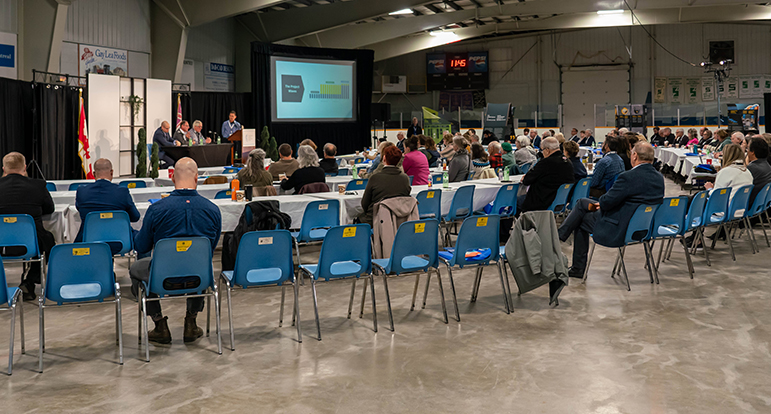Introduction:
Canada is set to follow Finland’s example by constructing its own Deep Geological Repository (DGR) for used nuclear fuel, potentially under 1500 acres of farmland near Teeswater in Bruce County, Ontario. This decision, while complex and controversial, carries several potential benefits for the county, from job creation and economic activity to environmental management. As Canada grapples with the question of safely storing nuclear waste, let’s delve into the advantages Bruce County could reap from hosting a DGR.
Job Creation:
One of the most significant benefits of the DGR is the potential for job creation. Estimates suggest that the construction and operation of the facility could create up to 600 long-term jobs. These positions could range from highly skilled scientific and engineering roles to ancillary services supporting the facility’s operations, thus providing a boost to the local economy.
Economic Activity:
Beyond job creation, the DGR is expected to generate millions of dollars in economic activity. This includes direct spending on the construction and operation of the facility, but also indirect effects, such as increased demand for local services and goods, housing needs for incoming workers, and the potential for attracting related industries and research institutions to the region.
Environmental Stewardship:
Hosting the DGR also positions Bruce County as a leader in environmental stewardship. By providing a safe, long-term solution for Canada’s high-level nuclear waste, Bruce County contributes significantly to resolving a national and global challenge. This commitment to environmental responsibility could enhance the county’s reputation, possibly attracting more eco-conscious businesses, investors, and residents.
Innovative Technology and Research:
The construction of a DGR involves cutting-edge technology and engineering techniques. Hosting this facility could attract additional research and development in these fields to Bruce County, fostering an environment of innovation and learning. The potential for collaboration with universities, research institutions, and private sector organizations could further enhance the county’s profile as a hub for scientific and technological advancement.
Community Empowerment:
The decision to host the DGR will ultimately lie with the residents of Bruce County, who will vote in a referendum by the end of 2024. This process ensures that the community has a significant say in the region’s future, fostering a sense of empowerment and ownership. Additionally, this initiative provides an opportunity for residents to learn about nuclear waste management, enhancing public understanding of this critical issue.
Engagement with Indigenous Communities:
The proposed DGR project will require support from the Saugeen Ojibway Nation (SON), whose traditional lands encompass the proposed waste facility. By actively engaging with the SON in decision-making processes, Bruce County can strengthen relationships with Indigenous communities and promote reconciliation and mutual respect.
Safety and Security:
The DGR represents a safe and secure method for long-term nuclear waste storage. Designed to isolate and contain radioactive waste deep underground, this approach greatly reduces the risk of environmental contamination. For Bruce County, this could mean a safer, cleaner environment for future generations.
Long-Term Stability:
Lastly, the DGR could provide a sense of long-term stability for Bruce County. The facility, once operational, is expected to remain so indefinitely, providing a consistent source of jobs, economic activity, and scientific research. This long-term perspective could make Bruce County an attractive place for individuals and businesses looking for stability and growth.
Conclusion:
The prospect of Bruce County hosting Canada’s first DGR for used nuclear fuel carries significant potential benefits, from economic and job growth to environmental stewardship and scientific innovation. Although the project also presents challenges and risks, the long-term advantages could place Bruce County at the forefront of Canada’s nuclear waste management efforts, transforming the region into a hub for innovation, economic development, and environmental responsibility.
More Info:

